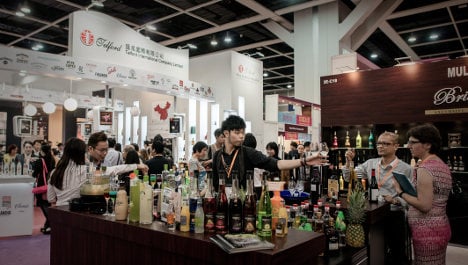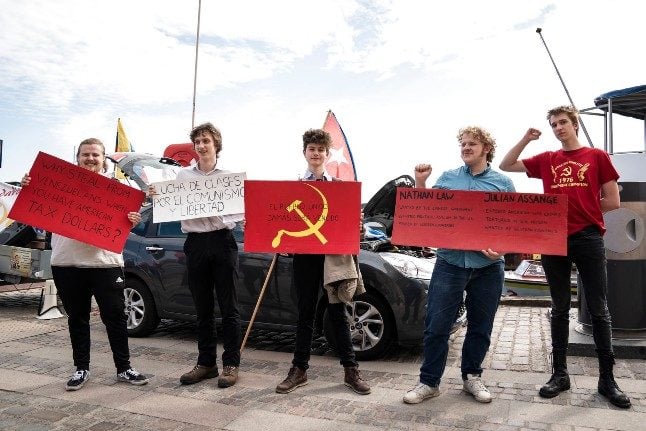Exports of Spanish wines surged 40 percent year-on-year in China in the first half of the year, according to Chinese customs reports, and it is now the third-biggest exporter of bottled wine to the lucrative wine market behind France and Australia.
"The Chinese are now searching for wines other than from France because they are more educated about wines from other countries," Hong Kong wine expert Mabel Lai told AFP.
But price is also a reason. Wines from Spain and other countries such as Italy, Portugal and Australia sell for less compared with French wines said Lai, who is a lecturer at the Hong Kong Wine Academy.
A top bottle of Spanish wine may range from US$260 to $390, but a bottle of a highly rated French vintage could be double that amount, she said.
French winemakers at the Hong Kong International Wine and Spirits Fair say increasing competition in the Chinese market is a good thing for the industry. France holds a roughly 50 percent share of the Chinese market.
"A little bit of competition will force us to improve our production and our winemaking," Jean-Laurent Soule, a sales manager for French winemaker Ravoire et Famille, told AFP, welcoming competition from other countries.
"We are still confident about the quality of our products," Soule said.
November's International Wine and Spirits Fair, one of Asia's largest, is partnered with Spain this year and has attracted more than 1,000 producers from around the world, as the southern Chinese city cements its position as an international wine hub.
Hong Kong, which abolished duties on wine imports in 2008, has become a gateway to the booming wine market in mainland China. In recent years, the city overtook New York to become the world's biggest wine auction hub.
Spain is seizing the opportunity to introduce its products to one of the world's fastest growing wine markets.
"Now wines from Spain (and other countries) are getting bigger and we are travelling around the world, and letting people know about their wines," Carlos Moreno, export manager for Spanish winemaker Bodegas d. Mateos, told AFP.
"The potential of this market is huge," Moreno said of China, adding that European and Western markets are "quite crowded".
Jack Chen, a 35-year-old wine shop owner in Shenzhen and a buyer at the Hong Kong fair, told AFP that good wines would always be accepted in the Chinese market.
"The Chinese consumers will have an open attitude towards the wine no matter if it comes from France, Spain or from other countries. As long as it is good stuff, the Chinese will accept it," Chen said.
October figures from the Bordeaux wine producers' body, Le Conseil Interprofessionnel du Vin de Bordeaux (CIVB), showed that the value for the Chinese market recorded a fall of almost 10 percent in terms of value for the year ending July.
"We no longer have the exponential increases in volume and value that we had a few years ago," CIVB deputy president, Allan Sichel said then.
Chinese wine consumption soared 142.1 percent from 2007 to 2011, reaching a total of 159.25 million cases or 1.91 billion bottles, the leading wine and spirits trade fair organiser Vinexpo said in March.
Although the growth rate — the world's fastest in wine consumption, — is tipped to slow to 39.6 percent between 2012 and 2016, a total of 252 million cases of wine are expected to be drunk annually in the Chinese market, including Hong Kong, in 2016.
The 2012-2016 expansion rate stays ahead of the world's biggest wine consumption market, the United States (12.2 percent) and France, which is predicted to see a three-percent contraction in 2016, according to Vinexpo.
Demand has surged in the world's second largest economy in recent years, driven by a rapid expansion in personal wealth as well as growing demand for foreign products.



 Please whitelist us to continue reading.
Please whitelist us to continue reading.
Member comments